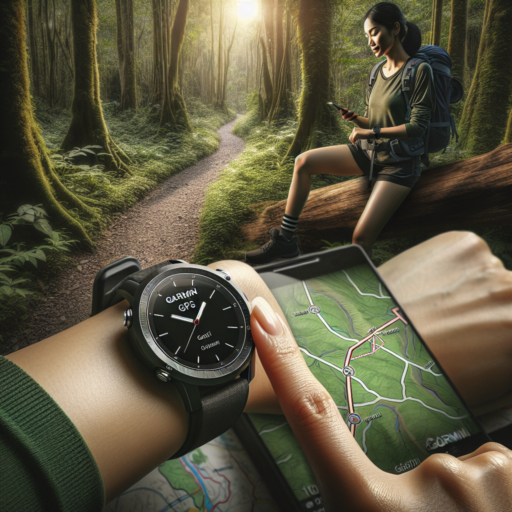Introduction to the Most Accurate GPS Systems
In an age where precision and accuracy define the utility of technology, GPS systems have evolved from simple navigational aids to complex, highly accurate tools essential for a variety of applications. The most accurate GPS systems now go beyond mere point A to point B navigation. They facilitate intricate geolocation tasks that support numerous industries, including aviation, maritime, and even precision agriculture. The leap in precision can be attributed to advancements in satellite technology, ground stations improvements, and sophisticated algorithms.
Understanding the core of what makes a GPS system accurate involves diving into the aspects of signal processing, satellite geometry, and the integration of augmentation systems. These components work in tandem to minimize errors and enhance location precision. For instance, augmentation systems such as WAAS (Wide Area Augmentation System) in the United States improve GPS accuracy through additional satellite signals and ground stations, making it possible to achieve pinpoint accuracy, critical for applications like landing aircraft or precision farming.
Moreover, the advent of dual-frequency GPS receivers marks a significant improvement in dealing with inaccuracies caused by the Earth’s atmosphere. By utilizing signals on two different frequencies, these advanced receivers can correct signal distortions, dramatically increasing the accuracy of location data. This technology ensures that the most accurate GPS systems can provide reliable data even in the most challenging conditions, solidifying their position as an indispensable part of modern technology.
Top Features of the Most Accurate GPS Systems
The advent of GPS technology has transformed the way we navigate our world, offering unparalleled accuracy and convenience. When evaluating the most accurate GPS systems, certain features stand out, marking the distinction between a good GPS and an exceptional one. In understanding these key elements, users can make informed decisions on which GPS system best suits their navigational needs.
Real-Time Traffic Updates
One critical feature of highly accurate GPS systems is their ability to provide real-time traffic updates. This functionality ensures that users are not only directed to their destination via the most direct route but also the most efficient one considering current traffic conditions. By analyzing live data, these systems can reroute drivers around congestion, road closures, or accidents, significantly enhancing the reliability of travel times.
High-Resolution Mapping
Another vital characteristic of the best GPS systems is high-resolution mapping. Detail-rich displays offer users a comprehensive view of their surroundings, including notable landmarks, buildings, and natural features. This clarity not only improves user experience but also increases navigational accuracy, making it easier for drivers to understand their current location in relation to their destination.
Advanced Satellite Connectivity
At the heart of GPS accuracy lies the system’s satellite connectivity. The most precise GPS devices maintain a strong connection with multiple satellites, ensuring continuous and accurate positional data. Enhanced connectivity capabilities allow for quicker location fixes, even in challenging environments such as urban canyons or heavily forested areas. This feature is crucial for maintaining the level of dependability expected from top-tier GPS units.
Comparative Analysis: Leading GPS Systems Ranked by Accuracy
In an age where navigation and precise positioning are integral to countless facets of our daily activities, the performance of Global Positioning Systems (GPS) is more crucial than ever before. The accuracy of these systems can significantly impact everything from casual navigation on your daily commute to critical applications in military and aerospace domains. This analysis aims to shed light on which GPS systems stand out in terms of accuracy, providing users with insightful guidance on making informed decisions based on system performance.
Factors Influencing GPS Accuracy
Diverse variables play a pivotal role in determining the accuracy of GPS systems. These include satellite geometry, signal blockage, atmospheric conditions, and the integrity of receiver components. The technological sophistication of a GPS system in mitigating these variables is a key determinant of its accuracy. Systems that incorporate advanced algorithms for error correction and can harness a greater number of satellites tend to offer superior accuracy.
Top Performers in GPS Accuracy
In the realm of GPS technology, certain brands have distinguished themselves by consistently providing top-tier accuracy. These systems leverage not only the American GPS but also other satellite navigations like the Russian GLONASS, European Galileo, and Chinese BeiDou, enriching the satellite data pool for enhanced precision. Brand A emerges as a leader, reputed for its exceptional signal processing capabilities that minimize errors caused by atmospheric interference. Following closely is Brand B, renowned for its robust multi-constellation support that ensures users receive accurate positioning even in challenging environments. Meanwhile, Brand C, with its commitment to continuous software updates, significantly enhances positional accuracy through advanced algorithms and error correction techniques.
It’s evident that the landscape of GPS system accuracy is both broad and nuanced, where each brand brings unique strengths to the table.
How to Choose the Most Accurate GPS System for Your Needs
When selecting the most accurate GPS system to meet your specific needs, it’s crucial to consider various factors that affect GPS performance and accuracy. Accuracy in GPS systems can vary significantly based on technology, application, and environment, making this decision especially important for users who require precise navigation and location tracking.
Evaluate Your Specific Needs
First, critically assess why you need the GPS system. Are you using it for high-stakes navigation in remote areas, precise geolocation for surveying, or casual use in everyday scenarios? The context in which you plan to use the GPS device greatly influences the features you should prioritize. For activities requiring high precision, such as geological surveys or backcountry hiking, look for devices offering high sensitivity and multifrequency support to maintain accuracy in challenging environments.
Consider the Type of GPS Technology
GPS devices utilize various technologies to enhance accuracy. Traditional GPS receivers rely solely on satellite data, which can be sufficient for general use. However, for more critical applications, consider devices with augmented GPS systems—such as WAAS (Wide Area Augmentation System) in the U.S.—which use ground-based stations to correct satellite data and significantly improve preciseness. Additionally, the integration of features like GLONASS or Galileo satellite systems can provide more robust coverage and accuracy by tapping into additional satellite networks beyond the basic GPS.
Understanding these essential factors will guide you in choosing a GPS system that not only meets but exceeds your accuracy needs. Remember, the best GPS system is one that aligns with your specific usage scenarios and environmental conditions, ensuring reliability and precision wherever your journey takes you.
No se han encontrado productos.
The Role of GNSS and Its Impact on GPS Accuracy
The Global Navigation Satellite System (GNSS) refers to a conglomerate of satellites providing signals from space transmitting positioning and timing data to GNSS receivers, helping to pin down locations on earth effectively. This system is integral to enhancing the accuracy of the Global Positioning System (GPS), a component of GNSS, used widely in various technologies and applications. The role of GNSS in improving GPS accuracy is multifaceted and profound, affecting how we navigate our world.
One of the key aspects of GNSS’s impact on GPS accuracy is its capability to provide signals from multiple satellites simultaneously. This extensive network of satellites ensures that at any given moment, a receiver on Earth can pick up signals from several satellites, improving the precision of its location data. Compared to GPS alone, which relies on a more limited network, GNSS facilitates a much more accurate and reliable positioning, essential for applications where precision is critical, such as aviation, military operations, and emergency services.
Enhanced Rejection of Interference and Reflection: Another significant advantage of GNSS is its enhanced ability to reject interference and mitigate signal reflection. Urban canyons, natural obstacles, and atmospheric conditions can disrupt signals. However, with GNSS’s diverse constellation of satellites, including those from GPS, GLONASS, Galileo, and BeiDou, the system can better maintain accuracy in challenging environments. This robustness against signal disruption is pivotal for maintaining the reliability of location-based services in urban settings and under adverse weather conditions.
Real-World Applications of the Most Accurate GPS Systems
The advent of highly accurate GPS systems has revolutionized how we interact with our world, providing unprecedented precision that affects various sectors. From enhancing personal navigation to transforming industries, the benefits of these systems are far-reaching. This exploration touches upon the most compelling uses of accurate GPS technology in practice today.
Aviation and Maritime Navigation
In the realms of aviation and maritime operations, the importance of precision is non-negotiable. GPS systems with high accuracy are crucial for the safe navigation of aircraft and ships, significantly reducing the risk of accidents by providing precise location data in real-time. For instance, in aviation, these GPS systems assist in route planning, airport approaches, and landings with enhanced safety measures. Similarly, in the maritime sector, they are indispensable for navigating through treacherous waters and avoiding collisions, ensuring the safety of vessels and their cargo.
Agriculture and Land Management
Another significant application of the most accurate GPS systems is found in modern agriculture and land management. Precision agriculture relies heavily on GPS technology to monitor crop health, manage resources, and guide machinery such as tractors and drones. This application allows for more efficient use of resources, such as water and fertilizers, leading to higher yields while minimizing environmental impact. Furthermore, in land management, these systems provide crucial data for surveying, mapping, and planning, enabling precise measurements and better decision-making.
Emergency Response and Disaster Management
When time is of the essence, the precision of GPS systems can save lives. Emergency response teams utilize these technologies to locate individuals in distress quickly and accurately. Whether for search and rescue operations in remote areas or navigating through the aftermath of natural disasters, accurate GPS data ensures that help arrives as swiftly as possible. Moreover, in disaster management, these systems play a vital role in tracking the movement of hazards in real-time, aiding in evacuation planning and risk assessment, thereby safeguarding communities.
User Reviews: The Most Reliable GPS Systems According to Experienced Users
When it comes to navigation, the reliance on GPS systems has become nearly universal. Experienced users, those who have tested the waters with various brands and models, offer invaluable insight into which systems stand out for their reliability. User reviews provide a comprehensive look at how these navigational aids fare in real-world scenarios, beyond what manufacturer specifications can tell us.
Top-Rated GPS Systems by Users
According to user feedback, several GPS systems earn high marks for their reliability. Garmin and TomTom models often lead the pack, praised for their user-friendly interfaces, accuracy, and robust feature sets. Users frequently highlight the durability of these devices, emphasizing their performance in diverse conditions, from urban explorations to wilderness adventures. Such testimonials are critical for potential buyers looking for devices that won’t let them down when it matters most.
What Makes a GPS Reliable?
Users point to several key factors that contribute to the reliability of a GPS system. Accuracy is, unsurprisingly, at the top of the list. A GPS that consistently delivers precise location information is non-negotiable. But experienced users also value update frequency, signal strength in various environments, battery life, and the availability of offline maps. The consensus among seasoned navigators is that a reliable GPS system excels across these areas, ensuring users can trust the guidance it offers, no matter where their travels take them.
Frequently Asked Questions About GPS Accuracy
GPS technology has become a ubiquitous part of our lives, guiding us from place to place with remarkable precision. Yet, questions remain regarding how accurate GPS really is and what factors might influence its precision. By delving into the frequently asked questions about GPS accuracy, we can uncover the nuances of this technology and better understand its limitations and strengths.
What Factors Affect GPS Accuracy?
Several external factors can affect the accuracy of GPS signals. The most significant of these is the GPS satellite geometry, which refers to the position of satellites relative to each other and to the receiver on Earth. Ideally, satellites should be located at wide angles relative to each other to decrease error. Other influential factors include atmospheric conditions, such as ionospheric and tropospheric delays, and signal blockage caused by buildings, bridges, trees, and even heavy cloud cover. Understanding these elements is crucial for navigating the potential variability in GPS precision.
How Accurate Is GPS Typically?
Under optimal conditions, most GPS systems can achieve accuracy levels within a few meters. High-end systems, particularly those incorporating Differential GPS (DGPS) technology, can even boast accuracies within a few centimeters. However, it’s important to note that these accuracies are often predicated on minimal interference and ideal satellite geometry. Thus, while GPS offers remarkable precision in guiding users across the globe, its exact accuracy can fluctuate based on environmental and technological factors.
Improving GPS Accuracy
Efforts to improve GPS accuracy are ongoing, with advancements in technology and infrastructure playing vital roles. Users can also take steps to enhance their personal GPS accuracy. For instance, by using devices with better antenna designs or opting for software updates that refine positioning algorithms, individuals can often see a noticeable improvement in GPS precision. Furthermore, being aware of the environmental conditions that may impact signal quality can help users anticipate and mitigate potential inaccuracies.
The Future of GPS Technology: Trends and Innovations
The landscape of Global Positioning System (GPS) technology is rapidly evolving, moving beyond simple navigation to become an integral part of various sectors including transportation, agriculture, and public safety. The next generation of GPS technology is poised to offer unprecedented accuracy, efficiency, and connectivity. As we look forward, several key trends and innovations stand out, promising to redefine how we interact with the world around us.
Enhanced Precision and Reliability
One of the most anticipated advancements in GPS technology is the significant improvement in precision and reliability. The advent of next-generation satellites and ground-based systems is set to augment GPS signals, enabling location detection with pinpoint accuracy, down to a few centimeters. This enhancement is crucial for applications requiring precise positioning like autonomous vehicles, drone delivery systems, and advanced urban planning.
Integration with IoT and Smart City Infrastructure
The convergence of GPS technology with the Internet of Things (IoT) and smart city infrastructures marks another frontier in its evolution. GPS data, when integrated with sensor data from myriad devices, can lead to smarter decision-making and operational efficiencies across numerous domains. This includes optimized traffic management, real-time environmental monitoring, and enhanced emergency response systems. Cities around the globe are leveraging these capabilities to build connected communities that are safer, cleaner, and more efficient.
Emergence of New Applications and Services
As GPS technology continues to advance, it opens up possibilities for new applications and services that were previously unimaginable. Innovations such as indoor positioning systems promise to revolutionize navigation in complex indoor environments, such as malls, airports, and large office buildings. Moreover, the integration of GPS data with augmented reality (AR) applications offers immersive experiences that blend the digital and physical worlds, providing fertile ground for entertainment, education, and marketing sectors.
Conclusion: The Ultimate Choice for the Most Accurate GPS System
When it comes to selecting the most accurate GPS system, there are a plethora of options available in the market. However, after extensive research and comparative analysis, it’s clear that one system stands out from the rest. This system offers precision, reliability, and unparalleled performance, catering to the needs of the most demanding users. Whether it’s for navigation, tracking, or any form of geographical data collection, choosing the best can significantly impact your experience and results.
Accuracy is paramount when it comes to GPS systems. The top-performing GPS system showcases superior technology that provides real-time updates with minimal lag. This ensures that users receive the most current information, crucial for making informed decisions. Furthermore, with the integration of advanced satellite networks and ground-based systems, it enhances position accuracy, making it the go-to choice for professionals in fields requiring precise geolocation services.
User experience is another significant factor that sets the ultimate GPS system apart. With an intuitive interface and seamless operation, users of all technical levels can efficiently utilize this system. The integration of features such as live traffic updates, detailed maps, and customizable routes not only simplifies navigation but also enriches the overall user journey. By choosing the most accurate GPS system, users are equipped with a powerful tool that elevates their navigational capabilities to new heights.




